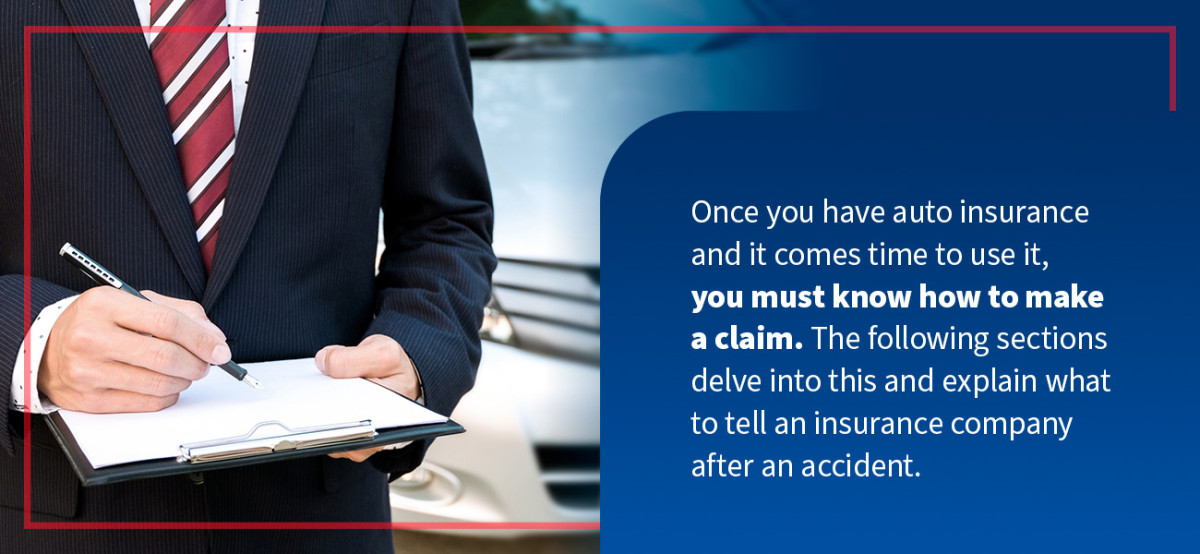Submitting an insurance claim can feel overwhelming, especially if it's your first time going through the process. This guide will help you understand what to expect and how to file an insurance claim for a car accident. Knowing the steps to making a claim can make the experience smoother and less stressful, whether a minor fender-bender or a more severe incident. Learn all you need to know, from understanding your coverage to finalizing your claim.
The Basics of Auto Insurance Claims
Auto insurance claims are requests to your insurance company for compensation following an incident involving your vehicle. These claims can cover various expenses such as property damage, vehicle repairs, medical costs and other related losses. However, the type of compensation and the amount will depend on your policy's coverage. Ensure you have the minimum required insurance coverage in Pennsylvania.
What Is an Insurance Claim?
An insurance claim is a formal request by you, the policyholder, to your auto insurer. It is a request for coverage or compensation for a loss or event insured by your policy. The insurance company will then review the claim and follow a process to determine whether to approve it. If your claim is approved, the insurance company pays you or another authorized individual.
When Should You File an Auto Insurance Claim?
Before you file an auto insurance claim, you must understand when it is appropriate to do so. There are certain times when it is inappropriate to file a claim, such as if the claim falls under exclusions or if the cost of repairs is less than your deductible. However, a claim could help you recover losses or cover the costs of accidents, theft or similar events involving your vehicle.
The following are instances where you should file an auto insurance claim:
- Accidents: File a claim after any vehicle collision, whether you are at fault or not.
- Theft: File a claim if your vehicle is stolen.
- Vandalism: File a claim if there is any damage caused by vandalism.
- Natural disasters: If you have coverage for storms and floods and experience damage from these events, file a claim.
- Injury: If you or your passengers are injured in an accident, file a claim.
Remember, filing the claim as soon as possible is best to ensure it can be processed on time.
Auto Insurance Claim Process

Once you have auto insurance and it comes time to use it, you must know how to make a claim. The following sections delve into this and explain what to tell an insurance company after an accident. These provide step-by-step actions to take and also explain how long it takes for a car insurance claim to process. Additionally, you will discover how to finalize the process and ultimately receive your payout from the insurer.
1. What You Need Before You Make a Claim
Gathering all necessary documents and evidence is essential when starting the claims process. The correct information can streamline the process and help ensure a favorable outcome. The following are the vital documents and pieces of information you'll need:
- Insurance policy: Your policy document outlines your coverage details and limits. It is a good idea to go over this before submitting a claim.
- Incident report: A detailed account of the incident includes the date, time, location and circumstances.
- Police report: If applicable, a police report can provide an official record of the incident and the details.
- Photos and videos: You should gather visual evidence of the damage to your vehicle and any other property involved.
- Witness statements: Have the contact information and statements of witnesses.
- Medical reports: You should include this documentation if anyone was injured or had related medical treatments.
- Repair estimates: It's best to gather quotes from auto repair shops for the cost of fixing the damage before filing the claim.
- Receipts: Keep all receipts for expenses due to the incident, such as towing or temporary transportation.
2. Ensure You Understand Your Coverage
Before you start the claims process, be sure you understand your coverage and deductibles. Review your policy to learn what is covered and the limits of that coverage. Be aware of your potential deductibles — these are the amounts you must pay before your insurance will pay out. Understanding these details can help you make informed decisions and avoid unexpected costs during the claims process.
3. Starting the Claims Process
You can start the claims process by contacting your insurance company as soon as possible. Provide them with all the necessary details about the incident. Submit the required documents, such as the police report, photos and other evidence.
Your insurer will assign an adjuster to your case, and they will investigate the claim and assess the damage. Ensure you are prepared to answer any follow-up questions and provide additional information. Keep a thorough record of all communications with your insurer. Also, track all documents you submit to them, as you may need to refer back to these at some point.
4. The Investigation and Insurance Adjuster
Once you have filed your claim, an insurance adjuster is assigned to your case. This is general protocol, so there is nothing to worry about. The adjuster's role is to investigate the claim by reviewing the submitted documents and inspecting the damage. They may interview the parties involved.
The adjuster will assess the extent of the damage and determine whether the claim is valid. They may consult with experts such as mechanics or medical professionals to evaluate repair costs and medical expenses. Their findings will then influence the final decision on your claim and the amount you receive from the insurer.
5. Time Frame and Outcome
The time frame for resolving an insurance claim can vary significantly depending on several factors. Straightforward claims, such as minor accidents with clear liability, can be processed quickly, often within a few days to a couple of weeks. However, more complex claims involving multiple parties, significant damage or disputes can take longer — sometimes several weeks or months.
Potential outcomes for a claim include:
- Approval: The claim is accepted, and you will receive compensation for the covered losses.
- Partial approval: Only part of the claim is approved, often due to coverage limits or exclusions.
- Denial: The claim is rejected, usually because the incident is not covered under your policy or there is insufficient evidence. It can also be denied if the incident occurred under unlawful activities.
6. Finalizing the Claim and Receiving Payment
Once the claim investigation is complete and approved, the last step is to finalize the claim. The insurance company will calculate the applicable payment amount based on the adjuster's findings and your policy's coverage limits. You will then receive a settlement offer, which you can accept or negotiate if you feel the outcome could be better.
Once you have agreed, the insurer will issue the payment, typically via check or direct deposit. Depending on the nature and specifics of the claim, this payment can either go directly to you or be paid to the repair shop or medical provider.
What to Consider Post-Claim
Once you have finalized the process, you'll want to know if there are factors that could cause your premiums to rise. You may also consider if you are happy with your current auto insurance provider.
Should You Switch Insurance Providers?
If you are looking for a new provider, consider what you should compare when looking at other insurance companies and research the top tips for getting the best price for your vehicle insurance.
Get Insured With AAA Central Penn

When looking for dependable auto insurance with your best interests at heart, consider AAA Auto Insurance in Central Pennsylvania. Whether you need your car repaired or some sound advice, our team is here to serve you.
We have been providing reliable insurance for over 100 years. Our AAA Central Penn Membership is also renowned for its reliability and many additional benefits, such as discounts and add-on services.

